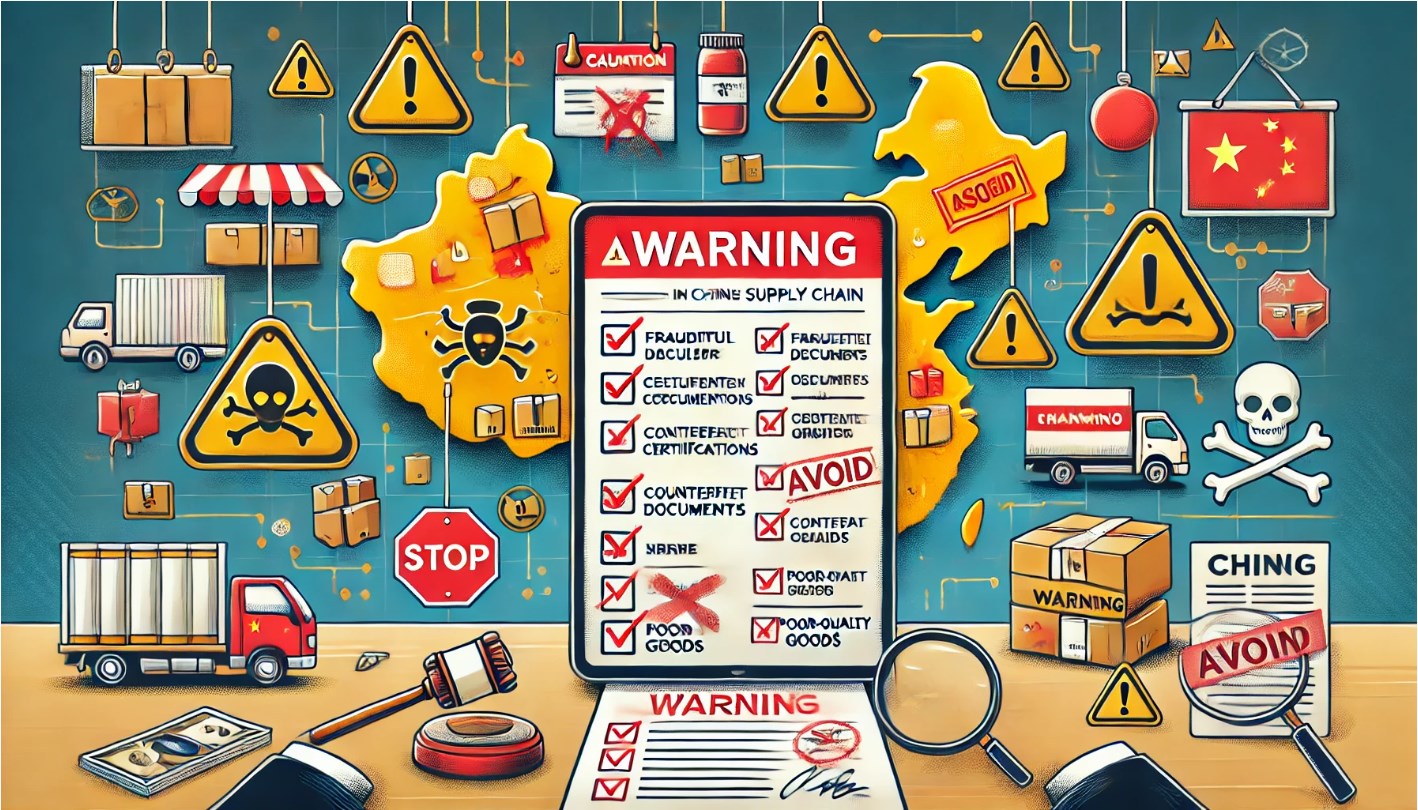What Does NVOCC Stand For?
The acronym “NVOCC” stands for Non-Vessel Operating Common Carrier. An NVOCC is a company that provides ocean shipping services without operating its own vessels. Instead, it leases space from shipping lines, consolidates smaller shipments into full container loads, and issues its own bills of lading to shippers. NVOCCs play a crucial role in international trade by facilitating efficient and cost-effective shipping solutions.

Comprehensive Explanation of Non-Vessel Operating Common Carrier
Introduction to NVOCCs
A Non-Vessel Operating Common Carrier (NVOCC) is an intermediary in the ocean shipping industry. NVOCCs act as carriers by issuing their own bills of lading and assuming responsibility for the cargo, even though they do not own or operate the ships themselves. They purchase space on vessels operated by ocean carriers, consolidate various shipments into containers, and provide logistical services to shippers.
Roles and Functions of NVOCCs
Cargo Consolidation
One of the primary functions of an NVOCC is cargo consolidation. NVOCCs combine smaller shipments from multiple shippers into full container loads, optimizing space utilization and reducing shipping costs. This service is especially beneficial for small and medium-sized businesses that do not have enough cargo to fill an entire container.
Issuance of Bills of Lading
NVOCCs issue their own bills of lading, known as House Bills of Lading (HBL). These documents serve as contracts of carriage between the NVOCC and the shipper, detailing the terms and conditions of the shipment. The NVOCC then receives a Master Bill of Lading (MBL) from the ocean carrier.
Shipping Arrangements
NVOCCs make shipping arrangements on behalf of their clients. This includes booking space on vessels, coordinating with ocean carriers, and managing the logistics of the shipment. NVOCCs leverage their relationships with multiple carriers to secure the best rates and schedules for their customers.
Regulatory Framework
FMC Licensing (United States)
In the United States, NVOCCs must be licensed by the Federal Maritime Commission (FMC). The FMC regulates and oversees NVOCC operations to ensure compliance with shipping laws and to protect shippers from fraudulent practices. Licensed NVOCCs are required to maintain financial responsibility, such as bonds or insurance, to cover potential claims.
International Regulations
Internationally, NVOCCs operate under various regulatory frameworks depending on the country of operation. These regulations ensure that NVOCCs adhere to international shipping standards and provide reliable services. Compliance with international maritime laws, such as the International Maritime Organization (IMO) regulations, is essential for NVOCCs.
Benefits of Using NVOCCs
Cost-Effective Shipping
NVOCCs offer cost-effective shipping solutions by consolidating cargo and negotiating favorable rates with ocean carriers. This allows shippers to benefit from lower shipping costs compared to booking directly with carriers.
Flexibility and Service Options
NVOCCs provide flexible shipping options tailored to the needs of their clients. They offer a range of services, including door-to-door delivery, customs clearance, and warehousing, making it easier for shippers to manage their logistics.
Expertise and Experience
NVOCCs possess extensive knowledge and experience in international shipping. Their expertise in handling complex logistics, navigating regulatory requirements, and managing documentation ensures smooth and efficient shipping processes for their clients.
Challenges Faced by NVOCCs
Regulatory Compliance
NVOCCs must navigate a complex web of regulations in different countries. Ensuring compliance with varying international and national laws requires significant effort and resources.
Competition with Ocean Carriers
NVOCCs face competition from ocean carriers that offer direct services to shippers. Maintaining a competitive edge requires NVOCCs to continuously enhance their service offerings and value propositions.
Managing Relationships with Carriers
Building and maintaining strong relationships with multiple ocean carriers is crucial for NVOCCs. This involves negotiating favorable terms, ensuring reliable space availability, and managing conflicts that may arise during shipping operations.
The Role of Technology in NVOCC Operations
Digital Platforms and Automation
Technology plays a vital role in enhancing the efficiency of NVOCC operations. Digital platforms and automation tools streamline booking, tracking, and documentation processes, reducing manual errors and improving service delivery.
Real-Time Tracking and Visibility
NVOCCs leverage advanced tracking systems to provide real-time visibility of shipments. This transparency allows shippers to monitor their cargo throughout the shipping journey, ensuring better control and management of their supply chains.
Data Analytics and Optimization
Data analytics tools enable NVOCCs to optimize their operations by analyzing shipping patterns, demand forecasts, and performance metrics. This data-driven approach helps NVOCCs make informed decisions, improve service quality, and enhance customer satisfaction.
Future Trends in the NVOCC Industry
Growth of E-Commerce
The rise of e-commerce has increased the demand for efficient and flexible shipping solutions. NVOCCs are well-positioned to capitalize on this trend by offering tailored services that meet the needs of online retailers and consumers.
Sustainability and Green Shipping
Environmental concerns are driving the adoption of sustainable practices in the shipping industry. NVOCCs are increasingly focusing on reducing their carbon footprint by partnering with carriers that use eco-friendly vessels and implementing green logistics solutions.
Blockchain and Supply Chain Transparency
Blockchain technology has the potential to revolutionize the shipping industry by enhancing supply chain transparency and security. NVOCCs are exploring the use of blockchain to improve documentation accuracy, reduce fraud, and streamline customs clearance processes.
Notes to Importers
Introduction
Importers are essential players in global trade, ensuring that goods move seamlessly across borders. This section provides detailed guidance for importers on navigating the complexities of the importing process, including regulatory requirements, documentation, and best practices.
Understanding Import Regulations
Compliance with Local Laws
Importers must understand and comply with the laws and regulations of the importing country. This includes understanding tariff classifications, import quotas, and restrictions on certain goods. Compliance ensures smooth customs clearance and avoids legal penalties.
Customs Documentation
Proper documentation is essential for importing goods. Key documents include:
- Bill of Lading: A contract between the shipper and the carrier detailing the shipment.
- Commercial Invoice: A document from the seller to the buyer itemizing the goods sold.
- Certificate of Origin: A document certifying the country where the goods were manufactured.
- Import License: A permit that some countries require for importing certain goods.
Tariffs and Duties
Understanding Tariffs
Tariffs are taxes imposed on imported goods. Importers must be aware of the applicable tariffs for their goods, which vary by product and country of origin. These tariffs are often outlined in the Harmonized Tariff Schedule (HTS).
Calculating Duties
Duties are calculated based on the value, quantity, and type of goods imported. Importers need to factor these costs into their pricing strategies to ensure profitability.
Logistics and Shipping
Choosing the Right Shipping Method
Importers can choose between various shipping methods, such as air freight, sea freight, and land transport. The choice depends on factors like cost, delivery time, and the nature of the goods.
Working with Freight Forwarders and NVOCCs
Freight forwarders and NVOCCs can simplify the importing process by handling logistics, documentation, and customs clearance on behalf of the importer. Selecting reliable partners is crucial for efficient and timely delivery.
Risk Management
Insurance
Importers should insure their goods against potential risks like damage, theft, or loss during transit. Cargo insurance provides financial protection and peace of mind.
Mitigating Supply Chain Risks
Diversifying suppliers and maintaining good relationships with key partners can help mitigate supply chain risks. Importers should also stay informed about geopolitical and economic conditions that could impact their supply chain.
Ethical Considerations
Sustainable Sourcing
Importers are increasingly expected to source goods responsibly. This includes ensuring that suppliers adhere to ethical labor practices and environmental standards.
Fair Trade Practices
Engaging in fair trade practices ensures that producers in developing countries receive fair compensation, contributing to sustainable development.
Sample Sentences Using “NVOCC” and Their Meanings
- The NVOCC issued its own bill of lading for the shipment.
- This means that the Non-Vessel Operating Common Carrier provided a bill of lading, which is a document detailing the terms and conditions of the shipment.
- Using an NVOCC can reduce shipping costs for small businesses.
- Using an NVOCC can reduce shipping costs for small businesses.
- This means that small businesses can lower their shipping expenses by utilizing the services of a Non-Vessel Operating Common Carrier, which consolidates shipments to offer cost-effective solutions.
- The NVOCC arranged for the cargo to be shipped from Asia to Europe.
- This sentence indicates that the Non-Vessel Operating Common Carrier coordinated the transportation of goods from Asia to Europe.
- Many importers rely on NVOCCs for efficient logistics management.
- This means that numerous importers depend on Non-Vessel Operating Common Carriers to handle their logistics needs effectively.
- The NVOCC provided tracking updates for the shipment throughout its journey.
- This indicates that the Non-Vessel Operating Common Carrier offered real-time tracking information for the shipment as it traveled.
Other Meanings of “NVOCC”
| Acronym | Full Form | Description |
|---|---|---|
| NVOCC | Non-Volatile Organic Compound Cleaner | A type of cleaner that does not contain volatile organic compounds, used in various industries. |
| NVOCC | Network Virtual Operation Control Center | A centralized system for managing virtual network operations and services. |
| NVOCC | National Voluntary Organizations Active in Disaster | A coalition of voluntary organizations that collaborate to provide disaster relief and recovery. |
| NVOCC | Non-Vessel Offshore Construction Company | A company that specializes in offshore construction projects without owning vessels. |
| NVOCC | Native Vegetation and Organism Conservation Council | An organization focused on the conservation of native plants and wildlife. |
| NVOCC | National Vehicle Onboard Computer Council | A council dedicated to the development and regulation of onboard computer systems for vehicles. |
| NVOCC | Non-Volatile Organic Chemical Compound | A chemical compound that does not easily evaporate and is used in various applications. |
| NVOCC | National Virtual Open Course Consortium | A consortium of educational institutions offering free online courses. |
| NVOCC | North Valley Outdoor Camping Club | A recreational club that organizes outdoor camping activities in the North Valley region. |
| NVOCC | National Veterinary Outreach and Care Center | A center providing veterinary outreach and care services to underserved communities. |
| NVOCC | Non-Viable Operations Command Center | A command center that manages operations deemed non-viable or unsustainable. |
| NVOCC | Networked Voice Over Cellular Communications | A technology enabling voice communication over cellular networks. |
| NVOCC | Non-Vessel Offshore Cargo Carrier | A carrier that transports cargo to offshore locations without owning vessels. |
| NVOCC | National Vision and Optical Care Council | An organization focused on vision and optical care standards and practices. |
| NVOCC | Networked Virtual Office and Collaboration Center | A virtual space for office work and collaboration among remote teams. |
| NVOCC | Non-Violent Offenders Community Center | A community center providing support and rehabilitation services to non-violent offenders. |
| NVOCC | National Volunteer Outreach and Care Coalition | A coalition of volunteer organizations providing outreach and care services. |
| NVOCC | Nuclear Vessel Operational Command Center | A command center overseeing the operation of nuclear vessels. |
| NVOCC | Natural Vegetation and Organism Conservation Council | An organization dedicated to conserving natural vegetation and organisms. |
| NVOCC | Nationwide Vehicle Overhaul and Care Center | A center specializing in the maintenance and overhaul of vehicles nationwide. |





